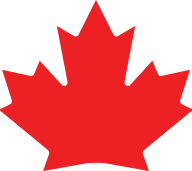



Permanent residence allows a foreign national to live in Canada permanently to work, study, and access social services. Having permanent residence gives a foreign national most of the rights and privileges of a Canadian citizen. However, a permanent resident does not automatically become a Canadian citizen, but rather retains his or her original citizenship.
Canadian citizenship is obtained at birth for anyone who is born in Canada. It can also be obtained by descent for those whose parents are Canadian citizens.
Foreign nationals who wish to obtain Canadian citizenship must first apply for and obtain permanent resident status in Canada.
Submission of Federal Skilled Worker, Federal Skilled Trade and Canadian Experience Class must be applied through the on-line Express Entry System and not through any Canadian mission overseas.
Canadian permanent residents and citizens enjoy all of the same rights and privileges with three (3) exceptions:
● Permanent residents cannot vote;
● Permanent residents cannot hold a Canadian passport; and
● Permanent residents can be deported for certain criminal convictions.
Temporary Resident status allows a foreign national to remain in Canada for a defined temporary period of time.
There are three main types of temporary residents: (1) visitors, (2) students, (3) workers.
As a permanent resident, you have to be:
physically present in Canada for at least 730 days within a five year period
OR
outside of Canada, accompanying a Canadian citizen, who is your spouse or common-law partner or you are a child accompanying a parent
OR
outside of Canada, employed on a full-time basis by a Canadian business
OR
you are a accompanying spouse, common-law partner or child of a permanent resident, who is outside Canada and is employed on a full-time basis by a Canadian business.
Parents cannot be included as accompanying dependents on an Application for Permanent Residence in Canada.
You may, however, be eligible to sponsor your parents to immigrate to Canada as members of the Family Class once you are residing here as a permanent resident of this country and meet the Minimum Necessary Income requirements.
We are more than pleased to answer any questions that you might have. With respect to documentary requirements, please go to IRCC online to look for the list of documents that are required.
We are more than happy that you can apply on your own. Very often, however, we have consulted individuals who have applied on their own and failed. The immigration application process may seem very easy and user friendly but any deficiency, e.g. failure to submit a document, poor reference letters, incomplete application forms can delay the application process or in worse situations, led to a negative response from Immigration, Refugee, Citizenship Canada (IRCC). In addition, the IRCC keeps computerized records of all applications submitted and Migration Officers are authorized to pull out previous records to help them make decisions on any future applications submitted by the same person.
The speed with which we work depends entirely upon you. If you provide us what we need in a timely fashion and follow our instructions properly, we can work quickly. If you do not give us what we need in a timely fashion or do not follow our instructions properly, preparing the application will take a longer time.
All supporting documents must be in English or French. If it is not in English or French, you must send it with:
– the English or French translation and
– an affidavit from the person who completed the translation and
– a certified photocopy of the original document
You will have to apply for a Permanent Resident Travel Document at the embassy in the country which you are residing. You will have to confirm your PR status and must meet the residency obligation of a permanent resident.
Your spouse can apply for an Open Work Permit if you are:
• Approved to work in Canada for six months or longer; and
• Doing a job at a high skill level (NOC O, A or B level)
Relatives who can be sponsored include:
– Spouse. The spouse is a person whom the sponsor has legally married. Canada does not recognize multiple marriages.
– Common-law partner. A common-law partner is a person with whom the sponsor has lived together for at least one year on a continuous basis.
– Dependent Children. A dependent child must be under the age of 22 at the time of application.
– Parents. Sponsor’s father or mother. Sponsored parents may be accompanied by their dependent children.
– Sponsor’s grandfather or grandmother.
– An orphaned brother or sister, nephew or niece or grandchild may be sponsored if person is related by blood or adopted, unmarried and below the age of 18.
– Adopted Children. A person who is under 18 whom the sponsor has adopted or intends to adopt.
– Other Relative. When a sponsor does not have any spouse, common-law partner, conjugal partner, child, parent, grandparents, etc. who can be sponsored, the sponsor may sponsor any relative regardless of their age. The sponsor must not have any family members who are Canadian citizens or permanent residents.
Canada does not have a Fiancé(e) Sponsorship Program at the moment. If you want to marry your fiancé(e) in Canada, then your fiancé(e) has to apply for a Temporary Residence Visa if your fiancé(e)is not from a visa-exempt country. Click here for a list of Exempted Countries.
Every situation is different. You may have to apply for a proof of citizenship for your child to find out if your child is a citizen.
Canada allows you to hold two or more citizenships, so you do not have to give up your citizenship to become Canadian. However, some countries do not allow dual citizenship and will take away your citizenship if you become Canadian.
You should therefore check the laws of the country that you are holding the citizenship.
ALL principal applicants must now undergo CELPIP or IELTS . The test results must be included when we file your Application.
Similarly, if claiming French language ability, all principal applicants must now undergo the TEF. This is the only French language test that is acceptable to Citizenship and Immigration Canada officials.
There are more than 60 ways to immigrate to Canada. The fees
vary depending on the complexity of your situation and the
type of immigration methods best suited to you.
We will let you know if we don’t think your case will win.
For those client cases that we do take on, we will do our best to ensure success. No effort will be spared to take care of even the smallest details of your case to make sure that everything is done properly and proceeds expeditiously.
Canadian laws do not allow anyone to guarantee the success of any case unless you are the decision maker for that case. Overall, we have an excellent success rate, and the vast majority of our clients obtain the result that they are seeking.
Our offices are located in Canada; we are governed 100 percent by Canadian laws which requires clients monies to be held in a trust account in a bank. BPS cannot use the money unless we have performed work on the case. Any balance belongs to the client and must be returned to the client should the client decided not to use our service.
Contrary to common beliefs, Immigration, Refugees, Citizenship Canada (IRCC) does not have jurisdiction outside Canada, so if you use a consultant whose office, say is in India, then Indian laws will govern the business. Similarly, if the office is in the Philippines, then Filipino laws will apply.
Even if the consultant holds a license from Canada, the arms of the Regulatory Agency (The College of Immigration and Citizenship Consultants or CCIC) is limited in its reach as it is not purview to the laws of the country where the office is registered.
Like medical doctors, we are subject to disciplinary action and may lose our license if we fail to abide by the rule and regulations of the regulatory Council which is supervised by Immigration, Refugees, Citizenship Canada (IRCC)
For more information on the rules and regulations governing regulated consultants, please visit The College of Immigration and Citizenship Consultants.

